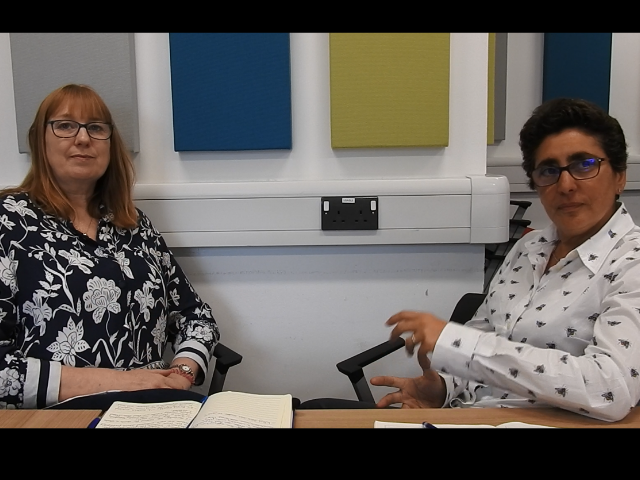
The difference having a public contributor can make to a funding application
7 August
Health and Care Research Wales provides a unique service that connects researchers with people who have real-life experiences related to their studies. Rachel Hazlewood is an autistic person who uses her lived experience to help shape research. As a result, she has become a public contributor on a research project looking into social care needs of neurodivergent adults.
After developing Myalgic Encephalomyelitis (ME) 15 years ago, Rachel, 54 from Cardiff, saw how little was understood about the condition and wanted to help change that.
"I realised that sharing my experiences could help researchers understand ME better," Rachel said.
One project Rachel helped shape was with Swansea University's Audiology Department, studying hearing and brain function in older adults. Her insights helped researchers understand sensory differences in autistic people better. Rachel said:
"I found the whole process fascinating and learned a lot about my own hearing and cognitive skills.”
Another significant project Rachel contributed to was creating a new tool for measuring common symptoms in ME.
"I'm proud to have played a role in developing this tool, which is now being trialled by the ME Association.”
Rachel has been involved in a variety of research projects through various organisations and universities before discovering Health and Care Research Wales’ Involvement Community, which connects people with lived experiences with researchers working on projects in diverse fields of health and social care research. Rachel gets regular email bulletin from Health and Care Research Wales which give a brief overview of opportunities to help shape research projects that are available.
Her contributions have also had a big impact on researchers. Dr Catherine Purcell, a Reader at Cardiff University, highlighted how Rachel's involvement helped her project on the social care needs of neurodivergent adults move to the second stage of funding. This shows how public contributors can make a real difference to research.
"Public contributors, like Rachel, provided insights we might not have considered. "Their input made our research application more relevant and inclusive for autistic people."
“For example, ensuring the product at the end of research was available in hard copy as well as electronically to ensure accessibility,” Dr Purcell said.
Rachel added:
"Researchers are waiting to hear your story. Sharing what you know can truly make a difference to their research projects and help them get funded."
Funders are increasingly looking for research projects that consider the public's voice, making the research more relevant and impactful. Public contributors not only help shape the application for research projects but also ensure studies are respectful and meet participants' needs, provide insights to improve how research is done, suggest practical ways to use the findings so everyone benefits and even help choose which projects get funded if they are a member of the funding panel.
Health and Care Research Wales provides a platform for researchers like Catherine and people like Rachel to connect and bring their expertise together. To learn more about how we can support your research contact the Public Involvement and Engagement Team